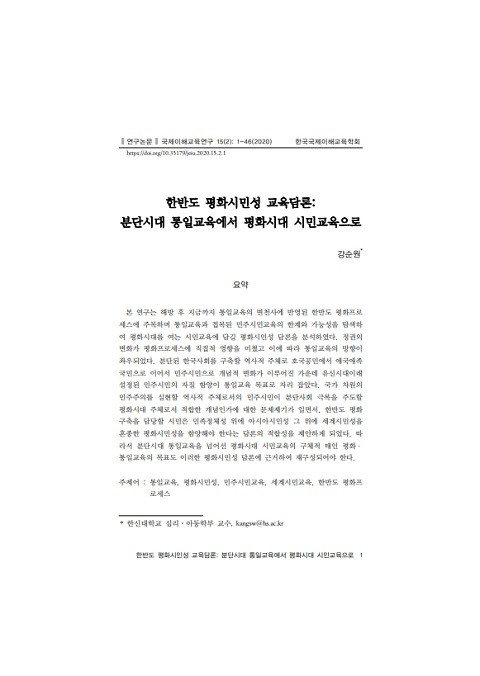
GCED Basic Search Form
Quick Search
Vous êtes ici
Ressources

This paper puts emphasis on designing the peace-oriented citizenship education towards the peaceful coexistent era beyond unification education in the divided society, analyzing the limits and possibility of democratic citizenship education connected with unification education which has been reflected by the peace process of present governments since liberation from the colonial period in 1945. According to the changes of unification education connected the peace process of each government, the name of historical subjects to take the initiative to overcome the division has been changed from civics saving the country to patriotic nation and onto the democratic citizen. Since Yushin reformation period, raising the democratic citizenship has been set up as the goal of unification education. But some critics of democratic citizenship were given to the limitation of the democratic citizen on overcoming the division and realizing peaceful coexistence and to the birth of hybrid citizenship with national commonality, Asian citizenship and global citizenship to challenge Korean peninsula agenda. Thus peace·unification education beyond division should be reconceptualized on the ground of the discourse of peace-oriented citizenship, which is applied to North Korea and South Korea as a global peace education framework.
